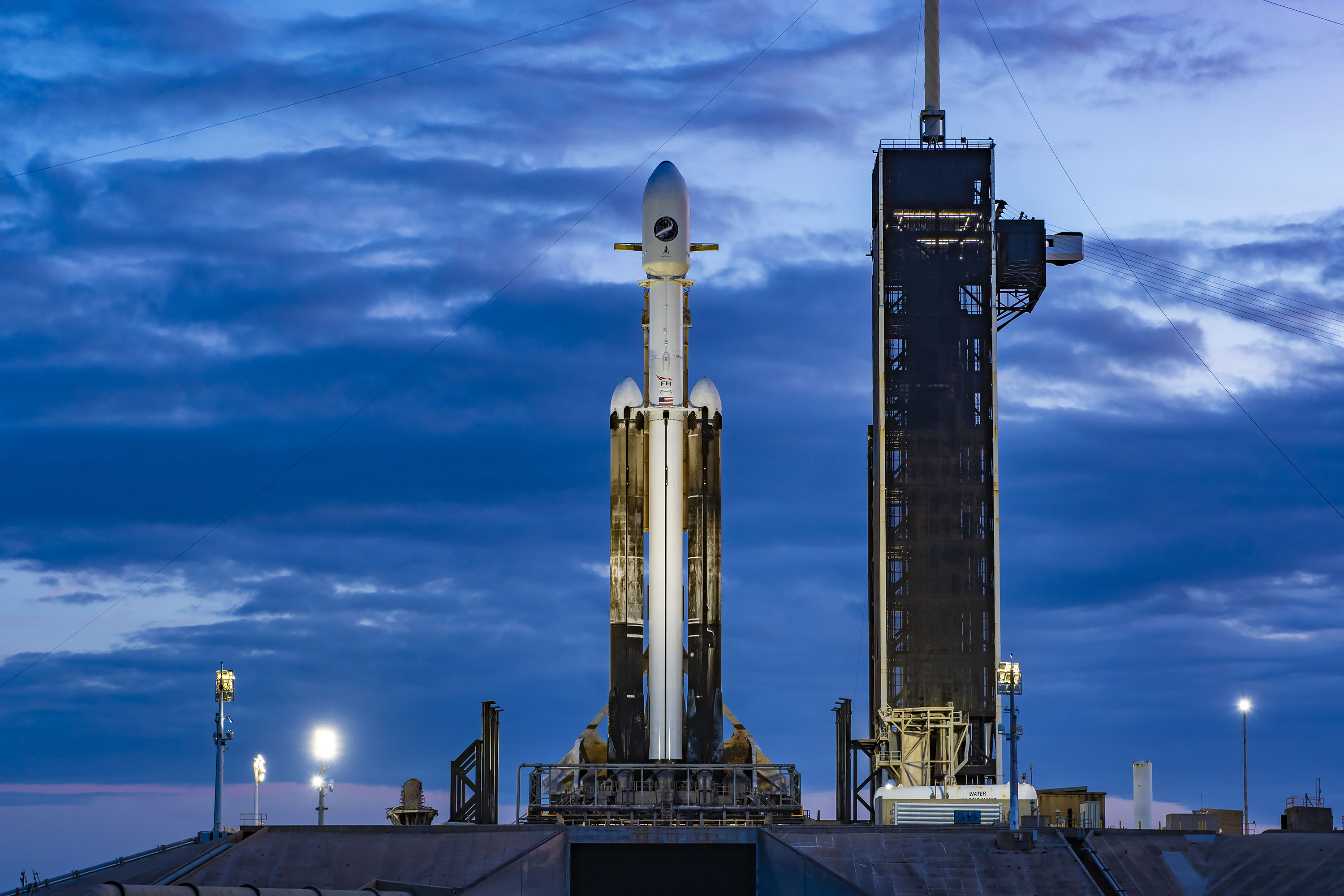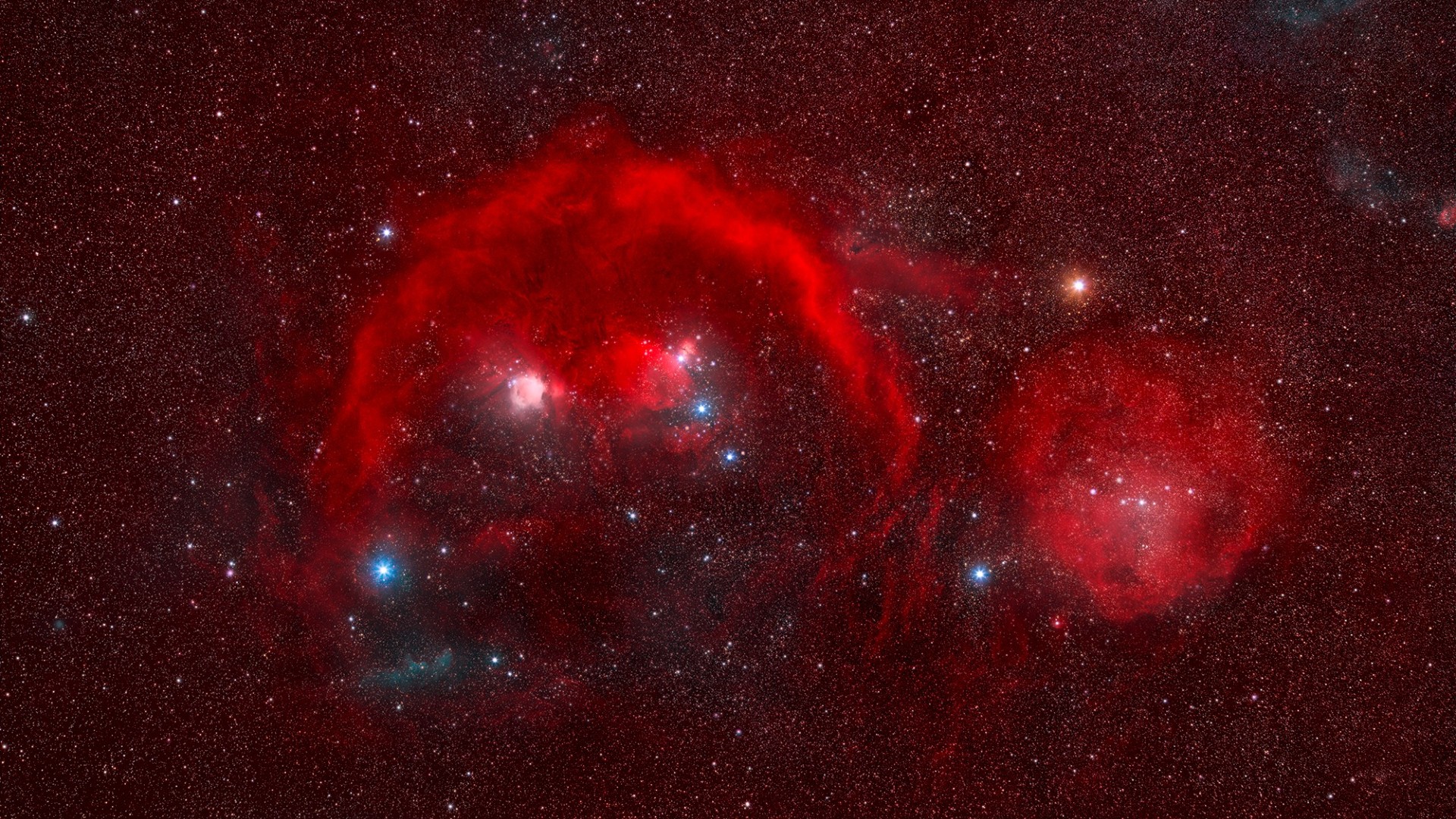Watch SpaceX's Falcon Heavy rocket launch a secretive X-37B military space plane today after delays
It's unclear what the plane will do when it reaches space.
Update for 8:41 p.m. ET: SpaceX's Falcon Heavy rocket carrying the U.S. Space Force's X-37B robotic space plane successfully lifted off on the OTV-7/USSF-52 mission at 8:07 p.m. ET (0107 GMT) from Pad 39A of NASA's Kennedy Space Center in Florida. Read our full wrap story with video. Our preview is below.
A SpaceX Falcon Heavy rocket is poised to launch the X-37B space plane for the U.S. Space Force today (Dec. 28) after several delays, and you can likely watch the action live.
Liftoff of the Falcon Heavy is scheduled to occur from Launch Complex-39A at NASA's Kennedy Space Center in Florida, during a window that opens at 8:07 p.m. EST (0107 GMT Dec. 28). If, as expected, SpaceX webcasts the liftoff, you can watch it live here at Space.com.
SpaceX announced an initial delay of the flight by 24 hours early Sunday (Dec. 10). Then SpaceX scrubbed the planned Monday (Dec. 11) launch of the X-37B space plane due to a ground issue for at least 24 hours. A new launch date was announced on Tuesday (Dec. 12), targeting Wednesday (Dec. 13), but the launch was delayed again due to "ground system checks", as SpaceX officials posted on X (formerly Twitter). The company then targeted Dec. 28 for the next launch opportunity.
Related: The Space Force's secretive X-37B space plane: 10 surprising facts

The X-37B is a spaceplane that has launched several classified long-duration missions in space, but it is unclear why it is launching on the more massive Falcon Heavy as opposed to the workhorse Falcon 9 that SpaceX has launched it on before.
The upgrade in launch vehicle may have to do with mass. The X-37B features a cargo bay to house equipment and experiments, and it could be carrying a secondary mission payload that requires Falcon Heavy's added lift capability.
Breaking space news, the latest updates on rocket launches, skywatching events and more!
The uncertainty here is not surprising; most details of X-37B missions are classified. However, USSF-52 does carry at lease one unclassified experiment: NASA's "Seeds-2" project, which will test the effects of radiation and long-duration spaceflight on plant seeds.
Each successive X-37B mission has been longer than its predecessors, with its most recent orbital jaunt lasting 908 days. That mission, called OTV-6, landed in November 2022.
When Falcon Heavy launches on Sunday, it will be the rocket's ninth mission to date. It will also be the fifth flight for the side boosters supporting this particular mission; the duo most recently launched NASA's Psyche probe, in October of this year.
Editor's note: This story was updated on Dec. 10 to reflect SpaceX's one-day delay of the launch of the Falcon Heavy and X-37B. It was also updated to reflect the scrubbed launch Dec. 11, the new launch window announced Dec. 12, and the new Dec. 28 launch opportunity.
Join our Space Forums to keep talking space on the latest missions, night sky and more! And if you have a news tip, correction or comment, let us know at: community@space.com.

Josh Dinner is the Staff Writer for Spaceflight at Space.com. He is a writer and photographer with a passion for science and space exploration, and has been working the space beat since 2016. Josh has covered the evolution of NASA's commercial spaceflight partnerships and crewed missions from the Space Coast, as well as NASA science missions and more. He also enjoys building 1:144-scale model rockets and human-flown spacecraft. Find some of Josh's launch photography on Instagram and his website, and follow him on X, where he mostly posts in haiku.
